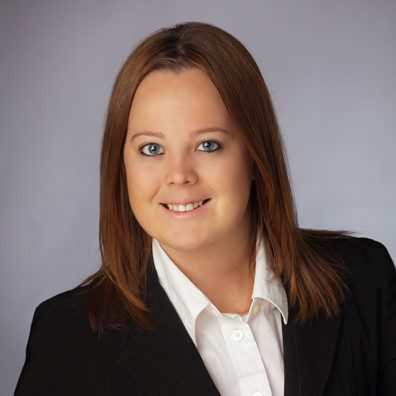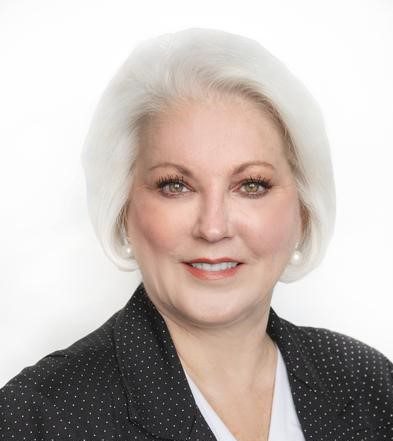Succession planning. Two words when placed together make your heart race in light of the decades spent building this hospital from the ground. Who am I going to sell to? How am I going to sell? What do I value my practice at? When is a good time to sell? These questions can raise fear and anxiety in the mind of the owner in finding the appropriate buyer and may ultimately inhibit the practice owner from making the best business decision for the hospital. At the end of a veterinarian’s career, their hospital is the culmination of their perseverance and life-long hard work; it’s only natural to want to protect what has taken them years to build. Creating a succession plan can help alleviate some of the stress associated with the uncertainty of the hospital’s future.
For sake of this article, let’s assume your retirement looks conceivable in the near future and you’re ready to sell your practice. You have spoken with your financial advisor and together have looked into your personal and business funds, health, alternative investments and activities, timing, and other crucial factors relating to your future. Together you both come to the conclusion that retirement is an undoubtable option. You are now able to step back from the pinnacle of your career and delve into your next step, determining who to sell your practice to. Several options include a current associate that you have developed a mentorship with, a new associate or group of associates, a corporation, or non-veterinarians. Though this last option may not be legal in all states.
Current Associate:
Let’s talk about that current associate, the one who has been diligently working at your hospital for many years and seems to be a very good candidate as a practice owner. As an astute colleague once outlined in a lecture on the veterinary profession: a great veterinarian handles their free time well, self-motivates, keeps enthusiastic about the veterinary industry, strives to advance every day, and lastly is loyal to your hospital.1 With some mentorship, a great veterinarian can become a successful business owner as well!
Mentorship, a Partnership:
Many practitioners see the word ‘mentorship’ and cringe at the fact that this is more of a time commitment than it may be worth or that the associate may not be competent and may require handholding through day-to-day activities. In a recent survey of AAHA-accredited practices, 74.08% of practices did not have a mentorship-like program in place. Most of these practices (60.78%) stated their reason for lack of mentorship was due to a lack of resources and guidance.2 Mentorship at the most basic level means as the senior veterinarian you have experience and knowledge more valuable and desirable than what that the junior veterinarian has gained from their years in practice. It is important to note though, this does differ from a supervisor that praises or punishes for behavior that does or does not fit into the practice’s operations. As a practice owner, you have already set in place a mentorship within your hospital by encouraging continuing education, allowing room for advancement within the hospital, or supporting personal and/or professional goals within the work place. Taking your relationship from the aforementioned to a true mentorship increases associate satisfaction and work productivity.
As a practice owner, you have either purchased your hospital from someone else or built it from the foundation up. You have worked in the industry for a very long time and have the confidence that younger veterinarians envy. A current associate may see the opportunity to become a practice owner as a dream come true, but in the end those are some very big shoes to fill. Through mentoring you can tailor your assistance to an associate’s needs and help them feel better suited for practice ownership through pre-determining your desired outcomes, clearly defining expectations, establishing benchmarks to track progression, and scheduling routine assessments.2
As we all know, within the work place you cannot anticipate quality work without outlining employee expectations. Putting this principle into practice, your first aim should be to setup expectations and create goals for each party involved. The protégé naturally wants to build confidence with the veterinary, business, and management sectors of your company. From the AAHA-hospital survey above, when veterinarians without mentorship programs in place were asked if they would create one within their hospital, 70% said it was “likely” or “highly likely.” Additionally, 63% of mentors stated it was a positive experience as well as decreased associate turnover rate and increased productivity of practice members.2 Not only does mentorship help the mentee become more confident within the hospital, but the mentor benefits by having a better work environment.
Many of you have probably heard the phrase “Happy wife, happy life!” This is applicable within the work place as well. Within the respective Gallup Studies, they reference “the presence of positive emotional states and positive appraisals of the worker and his or her relationships within the workplace accentuate worker performance and quality of life.”3 In essence, happy worker equals better work performance. Better work performance equals profit. Profit makes a happy business and business owner as well as a higher selling price. Cha-ching!
Lastly, your part as the mentor is to prepare your associate mentally for ownership. We all remember before veterinary school, being excited to start on this new adventure and hearing from veterinarians about how much stress the career entailed. You looked at them and said, “I can manage my stress well! There’s nothing I can’t handle!” But then veterinary school started. Your personal health went out the window as you devoted more hours to the books than you are willing to admit. You were constantly presented with “know all the things,” yet there was simply not enough time to know everything. Nothing before veterinary school prepared you better for that stress than veterinary school itself. Well, the same goes for owning a practice, as you can all recall! But it doesn’t mean you, as the mentor, can’t do everything in your ability to prepare them for the stress. You’re in a position to prepare that associate for the next exciting step in their life not only by supplementing their veterinary and management skills, but also by preparing them for the mental challenges. You have the chance to forewarn them of the challenges ahead and prepare them so it feels manageable when it occurs. This additionally opens up a new side to your relationship where you can connect with them on a personal level. As Dr. Charlotte Lacroix DVM, JD likes to say: your associate is about to become your veterinary spouse. Get to know each other on a deeper level. Do they have the right communication style and business mindset to succeed? When faced with a challenge do they rollover on their back in submission or do they dig their heels into the ground and say, “Come at me”? With your knowledge and assistance they will be well on their way to owning and operating a successful practice.
What if you are in the position where you are the sole veterinarian or you do not see your current associates as having the aptitude or desire to run your business? Then it’s time to search for a buyer! This buyer can come in the form of: a new associate, a corporation, or a non-veterinarian (once again, not legal in all states).
Hiring a New Associate:
In most recent years, buyouts from one owner to the next are the most common practice sale options.4 As a practice owner, you have likely hired many employees and know how to evaluate associates as being a good fit to your practice. Hiring with the intention of finding someone to take your own spot may seem frightening, but it’s important to hire an associate that embodies the traits that are important to you. Creating an outline of traits that are important can help facilitate an easier transition. For example: style of medicine, interest in the profession and promoting not only your hospital but veterinary medicine in general, ability to use their free time efficiently, enthusiastic and focused in the face of stress, self-motivated, and quick learners, are a few possibilities. If you find a veterinarian that doesn’t make you happy in most of these areas, it just may not be a good fit for you. Don’t force it and don’t settle! There are plenty of fish in the sea. In fact, in an article published by JAVMA last year, Melisa Edwards, VP of Veterinary Practice Finance at Bank of America, stated that for every practice on the market there are five to ten pre-qualified borrowers!4
Secondly, many people may not want to run a business and that’s okay. However, a growing percentage of graduating students are becoming more interested in the idea of being a practice owner. Thanks to the assistance of business educated veterinarians (such as Dr. Charlotte Lacroix at Ohio State, Michigan State, and University of Pennsylvania, and Dr. James Clark at UC Davis) and active Veterinary Business Management Associations, veterinary schools and clubs across the nation are placing more emphasis on students becoming more comfortable with business and legal issues within the veterinary field. Within my graduating class of 2016 at UC Davis, an in-class quick survey revealed about 40-50% wanted to own a practice within five to ten years of graduating. Graduates are coming out more prepared and less fearful about taking on this huge commitment.
Debt is the last topic I wanted to broach, as it is something that bothers senior veterinarians about new graduates. When new graduates are looking for a job, they need to be very aware of their finances; one poor move could leave them broke and unable to put food on their own table. I can assure you, most of us are plenty conscious and aware of this. Many lectures, discussions, and meetings have been available to us to manage this mountain of debt. Due to this fact, most are familiar with creating budgets and have made debt summaries and plans to reference for once we graduate. For those who are interested in purchasing a hospital, a personal business plan may be a good place to start. Within the business plan should be a budget that involves setting money aside in savings to use as a down payment for the practice. Additionally, the repayment programs available to new graduates makes debt of veterinary school and looking into owning a hospital within five to seven years of graduating very possible!
Many new veterinarians may be unaware of the program called Pay As You Earn (PAYE) available to recent veterinary graduates for loan repayment. This program works by allowing the student to make payments of 10% of their salary per year for twenty ears on a principal amount in which the interest does not capitalize (only capitalizes once as they enter repayment at six months after graduating). At the end of the 20 years, the outstanding balance is forgiven. The catch is that the amount that is unpaid is taxed as income. At $205,000 in debt and a starting practice salary of $71,000 with a modest salary growth of 3.5% with PAYE the total loan payments made over twenty years is about $160,000. The tax payment at the end of those twenty years would be just short of $120,000.5 What I am telling you is this: I just took at twenty year loan for $205,000 at 1.8% interest rate to be a veterinarian. Granted this doesn’t address any potential salary jump that comes with being a practice owner, but this is something to monitor as times goes on. My main point here is that owning a business will be just another repayment program that many graduates are completely willing to take on, especially for those eager for the challenge!
Multiple Associates:
In an article by Wells Fargo, “tomorrow’s practice owners are placing a greater emphasis on quality of life. They want to have a more regulated schedule in their workday, they appreciate a work environment that can afford the latest in diagnostic equipment, and many do not want to practice solo. … This change in outlook is driving a trend towards group practices with shared costs and responsibilities.” 6 As a practice seller, working on a purchase agreement with multiple people may be more of a hassle, but it also could provide a quicker practice payout period as two or three associates split the cost that may take a single practitioner fifteen to twenty years to pay off. Additionally, there is a wide, but false assumption that high-grossing or multi-owner practices can only be sold to corporate entities.4 Advantages of multiple-associate practices include shared overhead including leverage of debt, time, and stress; more efficient use of equipment and staff with more services, greater revenue, and more profit; and shared emergency and leave coverage. Disadvantages include having to plan ahead more, sharing the same vision, and taking blame for other’s actions including shared liabilities. 7
Corporations:
VCA Antech Inc., Blue Pearl, National Veterinary Associates, Banfield Pet Hospital, Veterinary Specialists of North America, PetVet Care Centers, and Community Veterinary Partners are some examples of veterinary corporations, to name a few. With corporation buy-outs, this may look very attractive to the practice seller. These corporations have much more financial power to purchase a hospital in a lump-sum sale. There is absolutely no way an associate or even multiple-associate buy-ins can compete with this. In a situation in which money is needed immediately and there is no time for a five to fifteen year payout, corporate sale may be the best option. That being said, some corporations require the practice seller to work within the company for a certain amount of years. It is important for you as the seller to be informed about your decision. Hiring a transactional lawyer with experience in corporate veterinary sale would be advantageous!
Hiring the Right People
Practice Valuation:
Once you have decided it is time to sell your practice, it’s time to start looking into hiring professionals with veterinary practice sale experience. The first step is to hire an appraiser to determine the purchase price point of your practice. Appraisal of a small business depends on the proportion of the value that is based on assets versus intangible assets offset by liabilities. In the veterinary community, intangible assets (or goodwill) due to the value clients bring to each hospital is most valuable. Hospitals are signing employee agreement contracts with non-compete clauses for this reason specifically. Other factors that enter into the massive equation of what your practice values at include, but are not limited to earnings (gross revenue minus operating expenses), geographic location and demographics, value of inventory, equipment, practice goodwill (how long it has been operating, capital structure, agreements, advertising, durability, size, potential for further growth), professional goodwill (including the experience, skills, reputation, earning power, etc. of veterinarians working there), client return rate, average client transaction rate, ratio of professional services to inventory sales, etc. The list is enormous, which is why appraisal numbers can vary between appraisers that have been practicing for decades. In the end, the appraisal is an estimate, which makes it very important for the buyer to hire an appraiser to also evaluate the appraisal that the seller has had completed as to minimize conflict of interest.
Legal Assistance:
There are several different types of lawyers, but the ones that are important to you in selling a practice are transactional lawyers. Dr. Charlotte Lacroix has been working as a transactional lawyer for eighteen years within the veterinary field. It is her job to work with practice owners to create or edit legal documents that are (or are not) present within the hospital as well as to assist in purchase sales. With the legal advice from a lawyer and the value of the practice in hand, a proper Purchase Agreement and other associated legal documents can be created for the sale of the practice to be completed.
Tax Advisors/Accountant:
The last people that are crucial to the sale of a practice are tax advisors and accountants. As you may suspect this is a very complex topic to cover in the breadth of this paper. Purchase sales in regards to taxes differ in relation to what type of business entity is being sold, whether it is a sole proprietorship, partnership, LLC, S corporation, or C corporation. As to prevent treating taxes like a patient treated with steroids and antibiotics, I will leave it at this: hire a tax advisor and consult with your accountant!
As the seller, working with your lawyer is imperative to determine the structure of the practice sale. If you are selling to a corporation this could very likely be a cash transaction, but more realistically if you are selling to an associate, this will be in the form of a cash and loan buy-in. Loans can come from the bank or even be financed through the owner of the practice, which is called ‘vested’ or ‘sweat’ equity in that the amount the buyer owes to the seller is taken from the salary of the buyer and paid out to the seller. For someone interested in sole ownership in the future, this is a slow-moving process that allows the new veterinarian to learn under the wing of an experienced practice owner while working towards owning his or her own practice.
If you, as the seller, own the land the practice sits on, another question to ask yourself is whether or not you should the real estate with the practice? This may not always be an option for the buyer as it increases the price they will need to pay, but should always be answered before entering the realm of practice sales. That being said, within the Well’s Fargo article referenced earlier “young doctors [are] purchasing a building, not just a practice. According to Dr. Branam, because interest rates for financing are still so low, more graduates are choosing to purchase commercial real estate and become a landlord in addition to running their practice, generating cash flow and financial fluidity.” 3
Lastly, another thing to consider when selling your practice is the well-being of your current employees and how they will be treated once the practice moves into new hands. Depending on your relationship with the employees as well as the structure of the practice sale, retainment agreements are beneficial to the buyer and are generally a requirement as a sale to a corporation. Additionally, the buyer naturally would like the employees to be under non-compete agreements as to guarantee their newly purchased goodwill will not leave as soon as the practice is under their jurisdiction.
Emergency Succession Planning:
In emergency succession planning, there should to be one person assigned as the executor. This person should have a good grasp on the flow of the hospital, be able to follow through with your emergency succession plan you’ve created, and be trustworthy. Regardless if this is a current worker or a family member, you and the executor should meet well before an emergency plan has been created to determine if they are a good fit for this position. Once you have found a willing executor, it is time to determine the direction of the practice. This direction can go towards selling the practice immediately with the proper legal documents and hired professionals in place, or towards handing down/selling the practice to a colleague. If you’re in the ideal situation of being co-owners, do you want to distribute the remainder of your practice evenly between the shareholders or sell to a new person? Regardless of your intentions, having thought through a plan and spoken with the proper professionals to contour a plan to your needs, those following you will be put in a much better place in case of an emergency.
For owners interested in maintaining their business, starting with creating an organizational chart will give the executor a place to start. This chart should state new job positions for the various parts of the hospital. New roles and job requirements will need to be created or be reorganized. Will the supervising technician now take over scheduling or will the executor do this? Will you hire a practice manager to cover the financial tasks the previous owner did or will the new executor do this, as well? In the end, general daily occurrences within a clinic should be written up like a Standard Operating Procedure (SOP). Someone should ideally be able to come in after you and pick up a binder with directions to keep a hospital running while the general emergency is being dealt with. If you are in the state of being in a sole proprietorship, more work may be necessary to find a new veterinarian. Of course in this situation, the option of selling the hospital immediately may be more appealing, but this should also be addressed with the executor, even if the executor is a spouse.
Lastly, once the executor is aware of their responsibilities this will need to be placed into writing, especially if the executor is not the spouse or family of the initial owner. Upon death, properties of the one who passed are kept as ownership of the spouse or closest family members. Contacting a legal representative to create this plan before an emergency occurs will remove the stress and possible legal battles that may occur in case you pass away unexpectedly. Unfortunately, an outline of this plan is much greater than what can be addressed within this article, but speaking with legal and financial advisors will help create a plan tailored to your needs.
Well, there you have it, folks. I know your brain may be burning and your eyes sore, but succession planning isn’t a small topic! Hiring the proper professionals can help you get more information and coverage during a practice sale. Regardless of your intentions as a practice owner, you are going to have to stop working at some point. Through reading this article hopefully you have thought about ways to make it more graceful and less stressful on yourself and those around you. By making a plan, you have outlined your goals of retirement as well as created a back-up plan in case of emergency so your family can receive benefit from the value you have created. Succession planning does not have to be a demanding experience. By hiring the correct professionals and working with a buyer you trust, this process can be seamless and simple.









